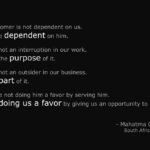This article first appeared in Business Journal Africa – Empowering Africa’s Entrepreneurs – Issue No 160 of August 2013
I am convinced without a doubt that the famous Jamaican pop singer and rapper Shaggy has invaded my Sacco, held the Sacco officials captive and hard-wired their brains with his famous hit ‘It wasn’t me’. I recently resigned from my Sacco and followed their instructions to write an official termination letter and wait for a two months notice period to receive my shares refund. Upon expiry of the two months, I called up the Sacco to request for my refund and there began an interesting journey akin to a chess end game, where the black and white kings were performing a shifting dance on the checker board.
The Sacco treasurer informed me that he’d been out of town and couldn’t respond to my email enquiries. He advised that I should actually have been speaking to the Sacco Chairperson who writes out cheques. I then called up the Sacco Chairperson who duly informed me that he doesn’t deal with finance matters and that I should talk to the treasurer who is in charge of refunds. After I let him know I had already spoken to the treasurer who referred me to him, he exclaimed out loud and requested me to hold on the line so that he could conference in the treasurer into our phone call to clarify who was responsible for refunds.
At this point I explained to the Chairperson that I was actually not interested in the internal workings of the Sacco refund process, but only needed a response to when my refund would be ready. Needless to say it is now 3 months down the line and my refund has not been processed. The proceedings there between have been characterized by numerous telephone and email conversations, ending up in a cat and mouse game of call avoidance and non response. I am currently in the process of instituting legal action against the Sacco.
This brings to light the critical question about service failure and the integrity a business portrays in this delicate situation. As Professor Stefan Michel of the Orchestrating Winning Performance ( OCW) programme stipulates “ Service failure isn’t necessarily a disaster for a company. If the service recovery actions are handled well, then customer satisfaction, trust and loyalty can actually increase”. This apparent paradox is true and has been proven time again.
Service failure will happen. Businesses and corporates are run by human beings and errors will occur. What matters most is how one swings into action post the service failure. Where possible, if the failure is detected before a customer complains, then communication with the customer in advance will create a feeling of goodwill, where the customer’s perception of the business will be ‘they care about me’.
If a customer complains about a service failure, without fail (pun intended) the business must acknowledge the complaint. Customers are always on the defensive when making complaints and their default reaction is the need to defend themselves and argue their case. If the customer is assured that their complaint has been received and is being looked into, it creates an instant feeling of importance. An apology would also go a long way to reassure the customer. This does not necessarily need to be in form of the magic word “I’m Sorry”(for sometimes the failure may end up being on the part of the customer) but such phrases as ‘kindly bear with us as we look into this matter’ work the same magic.
Where an alternative solution can be found to address the customer need, it should be applied immediately and where applicable, compensate the customer. This may be in form of a complimentary product or service, priority in the service delivery process, upgrading a service delivery package or applying a discount. Acknowledge the customer for helping you improve.
Once the incident has been investigated, it is very important to explain to the customer what happened and what measures you have put in place to ensure it does not happen again. Explain to them what you have learned as a result of their pointing out this service failure and what measures of improvement you have now instituted to improve your service delivery. The customer will definitely feel like a hero. Everyone loves to be a hero and the complaining customer will definitely want to show off, about how their complaint translated into action. The critical turnaround will have been achieved. Entrenched in the customer’s mind will be the notion ‘If this is how they treat me when things go wrong, these are definitely people I want to be close to and to give my business’. People are always wary of being short changed, conned and taken advantage of. So if your brand is one where the customer knows that when things go wrong they will be listened to, they will love you for life and tell everyone about you.
Bearing this in mind, let’s assume my Sacco Chairperson had explained to me with utmost integrity the exact reasons why my cheque wasn’t ready, possibly the trouble they were experiencing, the actions they’d put in place to prepare my refund and the reforms they were putting in place to address the service failure. Would I have gone ahead and instituted a legal process against them? Highly likely not. I may even have empathized with them and proposed suggestions of how I think they could sort out the problem. Customers very often have ingenious ideas that businesses may never have thought up on their own.
Having integrity around service failure is the biggest litmus test for any business. If one can uphold integrity when things are headed south, then therein lies the magic formula for success. Above all the cardinal rule that a customer must feel heard should be upheld. They must feel that their anger, hurt, annoyance, irritation and disappointment have been registered and are important. And the crunch line is that the response must be genuine and not just formal customer service rhetoric. The customer must feel that you are authentic in your speak and that you are doing your level best to find a solution.
I therefore pose a challenge to businesses out there – simply put on your cap of integrity and face the customers head on when things are at their worst. You will see increased customer loyalty, commitment and patronage as a result.






